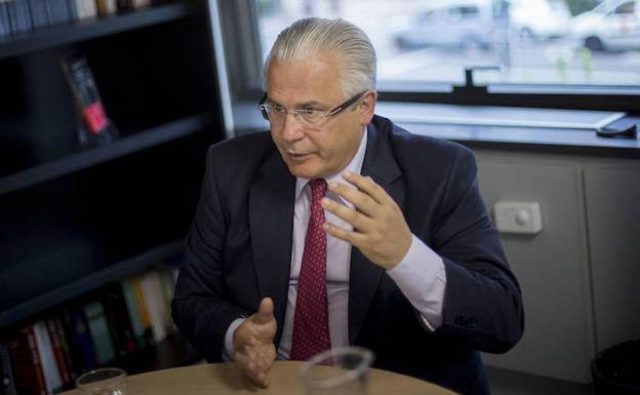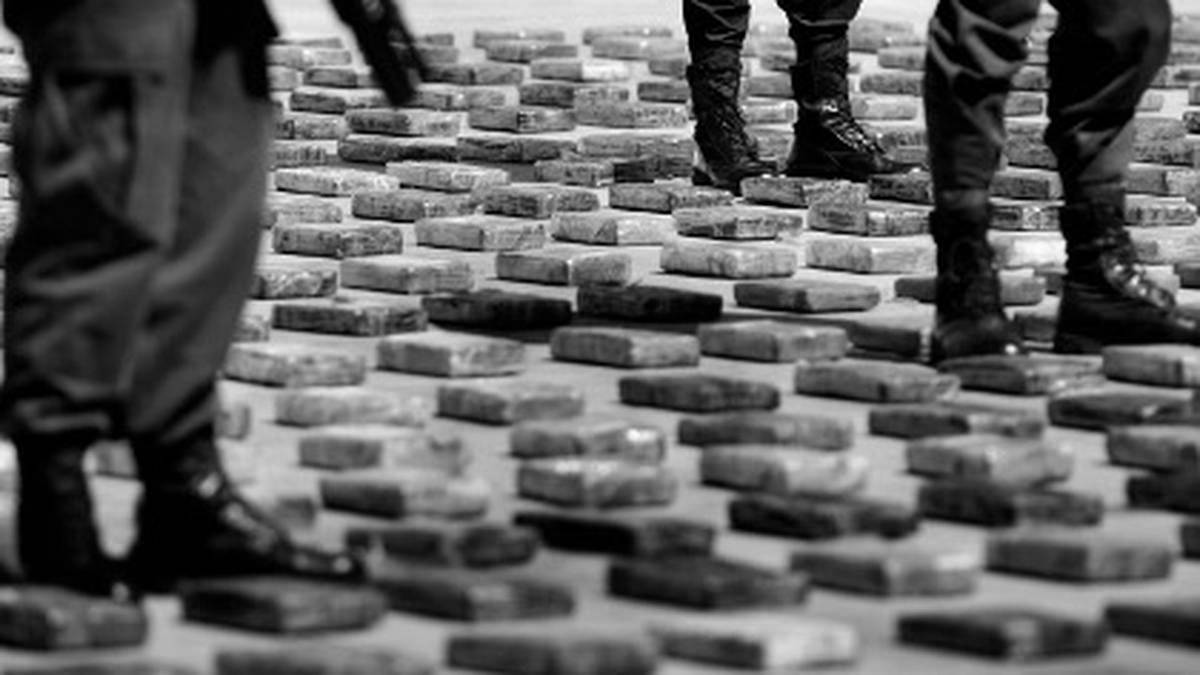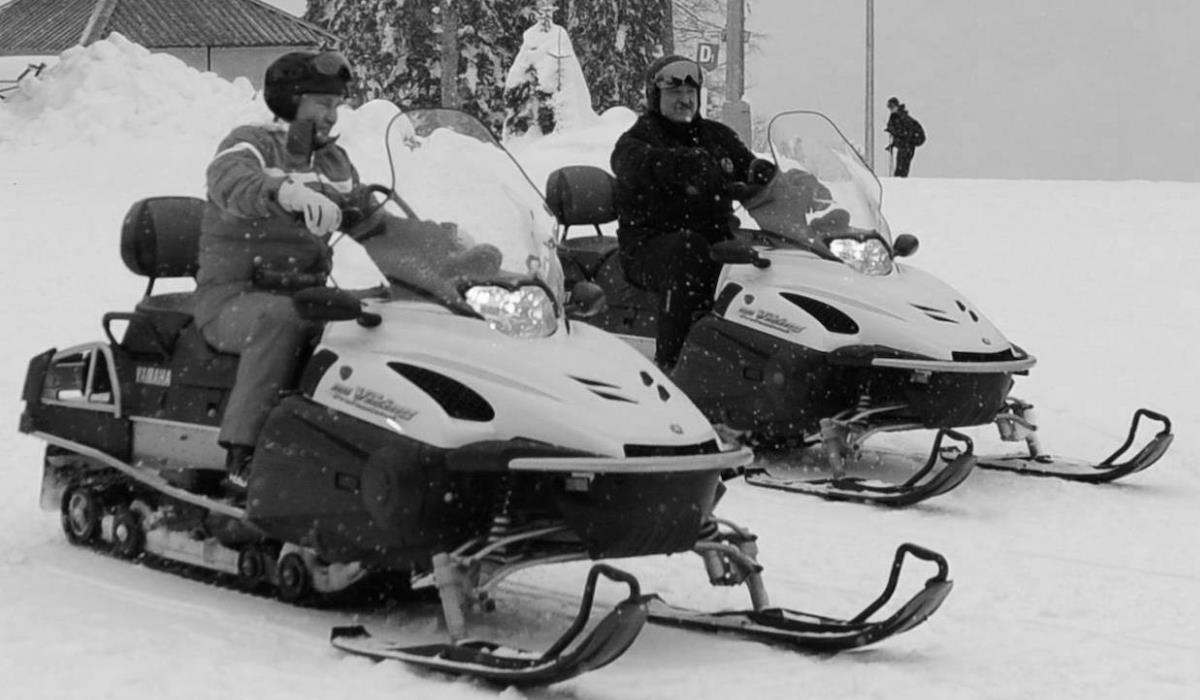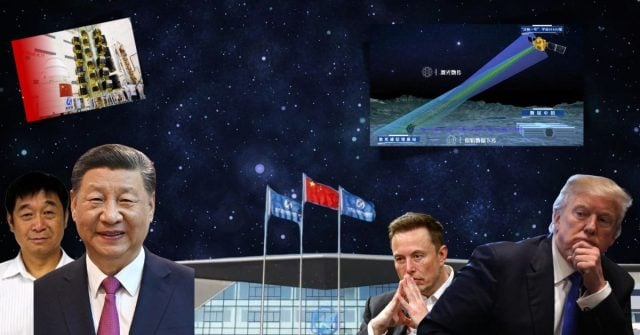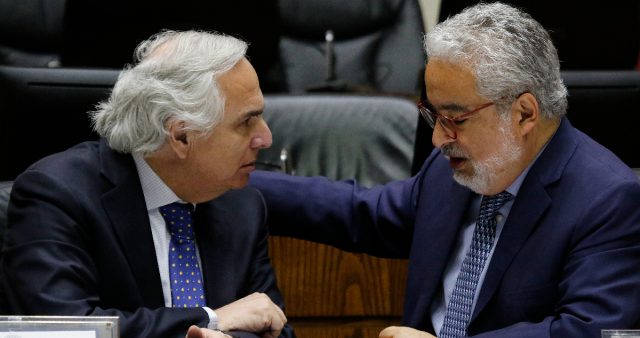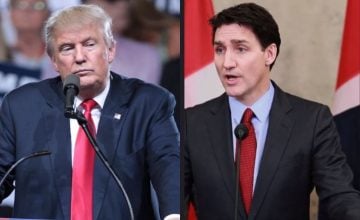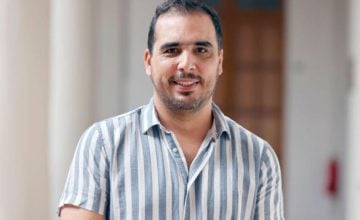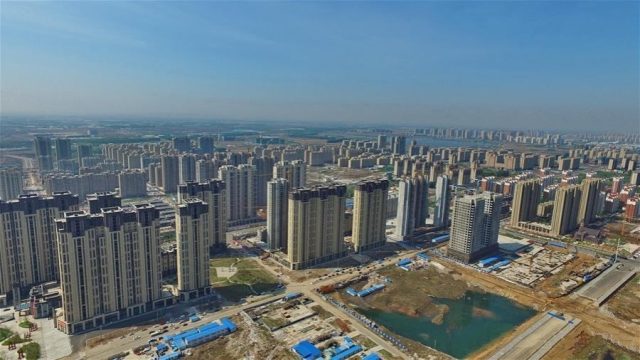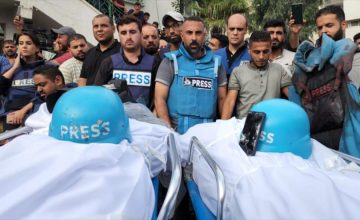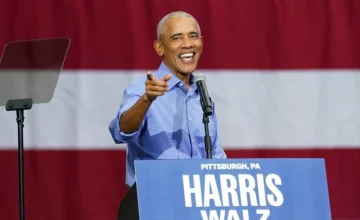Judge Baltazar Garzón was passing through the program “Voces sin Fronteras” to discuss various legal issues that are on the table in Latin America and the Caribbean. The Spaniard is internationally known for various causes, including being the judge who issued the arrest warrant against the Chilean dictator Augusto Pinochet (1973-1990).
Today, Garzón represents two court cases as controversial as they are complicated. On the one hand, he is a defense attorney for Wikileaks founder Julian Assange. The Australian is deprived of liberty in the United Kingdom and is in danger of being extradited to the United States, where he is accused, unfoundedly, of «crimes against national security».
At the same time, Garzón also legally represents Alex Saab, the Venezuelan diplomatic agent in the African Union of nations who is in prison on the island of Cape Verde. And, it is no surprise, that this citizen is also requested by the United States, whose government is seeking his extradition using tricks and violating international law.
It is precisely on this last topic that the conversation begins with Garzón, a staunch defender of human rights. In ‘Voces sin Fronteras’, the Spanish jurist was interviewed by Bruno Sommer and Denis Rogatyuk.
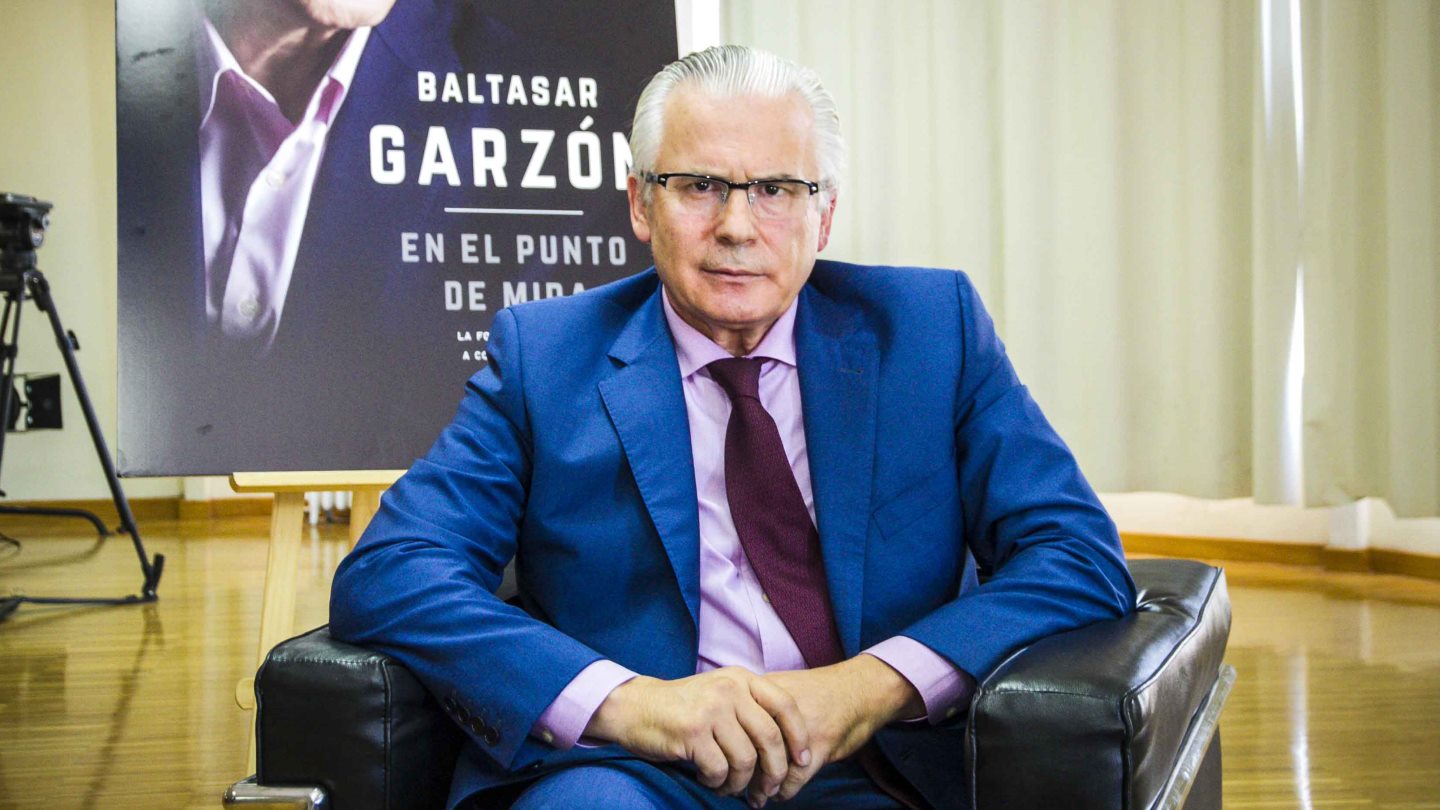
Is there a deal or agreement between the United States and Cape Verde that allows the extradition of Alex Saab?
Garzón: First of all, it is not necessary that there be any type of treaty between countries so that whoever has committed an alleged crime can be detained and extradited. But it happens that, if there is a bilateral agreement, we have to adjust to the standards that are included in that bilateral agreement, multilateral agreement or reciprocity. The latter means that when there is no agreement, the rules of reciprocity operate: «If I act in one direction, you have to do the same».
Curiously, this is the situation with the United States, but with an aggravating factor. The United States has made it very clear to Cape Verde that it will not respect reciprocity. So, Cape Verde should say: «Tomorrow, if this happens in the United States and we are demanding extradition, you are going to comply and then, the procedure is over». Obviously, Cape Verde has not said this, because we are talking about a tiny archipelago of barely 2,000 inhabitants and the world’s leading imperialist power.
The imbalance is absolutely clear and there must be a fundamental element: an international arrest warrant. That arrest warrant was issued by the United States in a situation that we can comment on later and then, based on this, Cape Verde intervened.
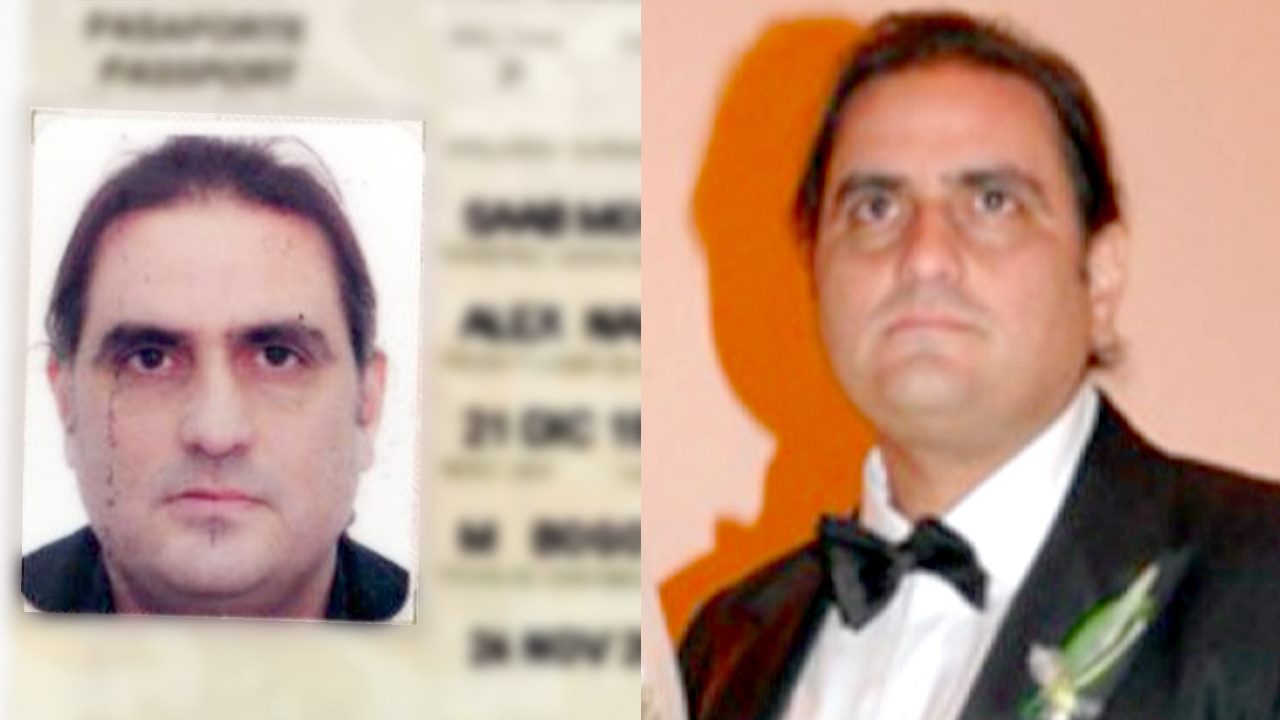
At the time of Alex Saab’s landing in Cape Verde: Was there an arrest warrant against him? If not, when was it actually issued?
Garzón: One of the ‘blind spots’ that exists in this case is that when Alex Saab was arrested, on June 12, 2020, there was no red alert at Interpol. A Red Alert means that there is an arrest warrant that must be complied with by the authorities of the Interpol organization with its headquarters in Lyo.
In this case, there was no such arrest warrant. And if it existed, it didn’t have the Red Alert. Therefore, Interpol could not execute it. What happened, and the data has been contrasted, is that Alex Saab was diverted (the plane that was taking him) to a jurisdiction friendly to the United States, after having been denied landing in two North African countries. It was necessary to refuel and once he arrived in Cape Verde, all the mechanisms were activated and an order was issued the next day.
Therefore, the detention in Cape Verde is illegal and we have been defending it from the beginning. With an unfavorable moment of success, but which is the subject of analysis within the court of the Economic Community of West African States (EAEC) and also in the courts of Cape Verde. It is an illegal detention because, it also violates the status that Alex Saab had as a Venezuelan diplomatic agent.
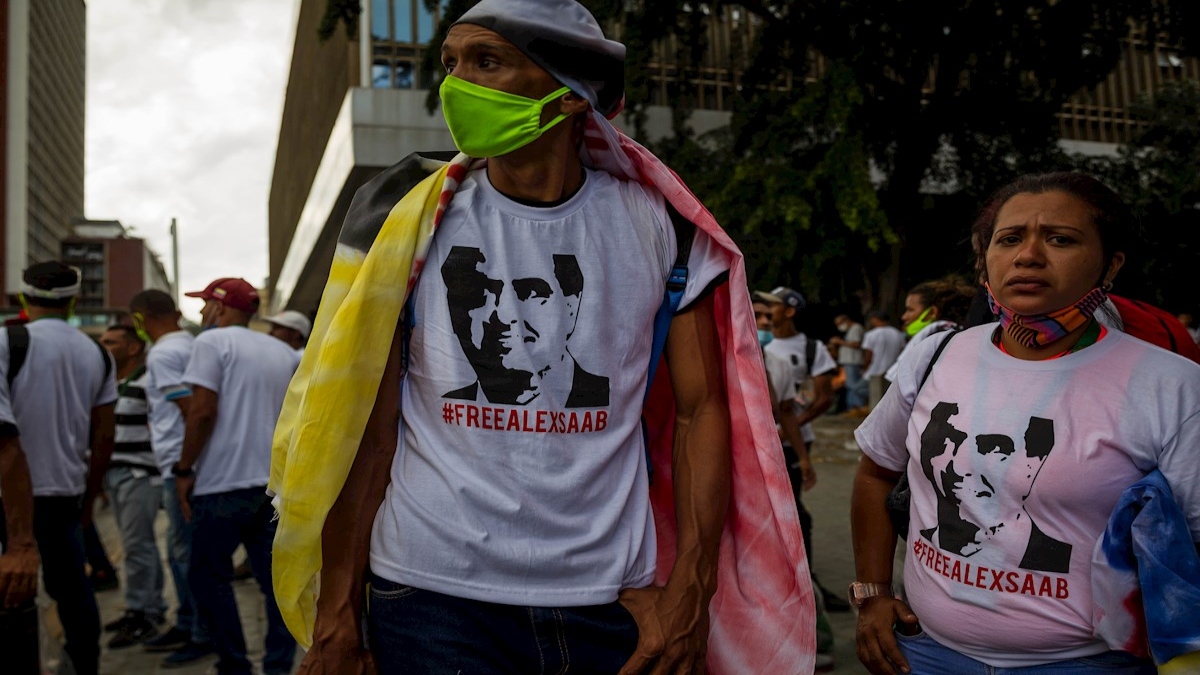
There is a document issued from the CEEAO that Cape Verde is ignoring. Is that in line with the law?
Garzón: The CEEAO tribunal, also known by its acronym ECOWAS, is a territorial organization that has jurisdiction within the Economic Community of West African States. Cape Verde belongs to it and, therefore, due to this fact, the resolution that its court establishes is binding on all States. We, the defense team, raised before this court the situation of illegality, violation of diplomatic rights of Alex Saab. Also the loss of freedom in extreme situations that made it impossible, not only the right to a defense, but also the humanitarian treatment that any person should have.
That is the claim that has been brought before the EAEC court. For now, as for the precautionary measures that were requested, the court established that Alex Saab’s prison should immediately cease for a less rigorous situation, such as house arrest. This was so that he could have access to proper medical treatment.
During all these months until approximately 15 days ago, Alex Saab had not had access to adequate medical treatment. He had not been able to be visited by a family-designated doctor, a fundamental right that anyone has in any democratic system. The prison conditions have really been appalling, in a two-square-meter cell with a hole in the ceiling through which little daylight entered. They were disastrous hygienic conditions, especially for a person who has a proven cancer condition, that aggravated his physical and psychological condition in that extreme situation.
Therefore, now we can hope that the CEEAO definitively decides on the merits, that is, on whether Alex Saab’s immunity as a diplomatic agent was violated, not only in the humanitarian work from the Bolivarian Republic of Venezuela, but also before the African Union, where he was explicitly designated as such.
We see that this situation is very serious because there was no right to detain this person. This is something important that is also subject to investigation, despite the reluctance of the police and the competent judicial body. Because the letters proving his appointment and status as a diplomatic agent were hidden by the police. No mention was made of them. When Alex Saab’s belongings are intervened, it is simply omitted that those belongings included the credentials that showed that he is a diplomatic agent and, therefore, protected by the Vienna Convention of 67 ‘. Then, he could not be touched but, directly expelled from the country or declared persona non grata and sent to his country of origin.
Obviously, it was done because the United States is behind it. It is a reflection of the position of the United States with respect to Venezuela, its Government and all those people who have some relationship with the South American nation.
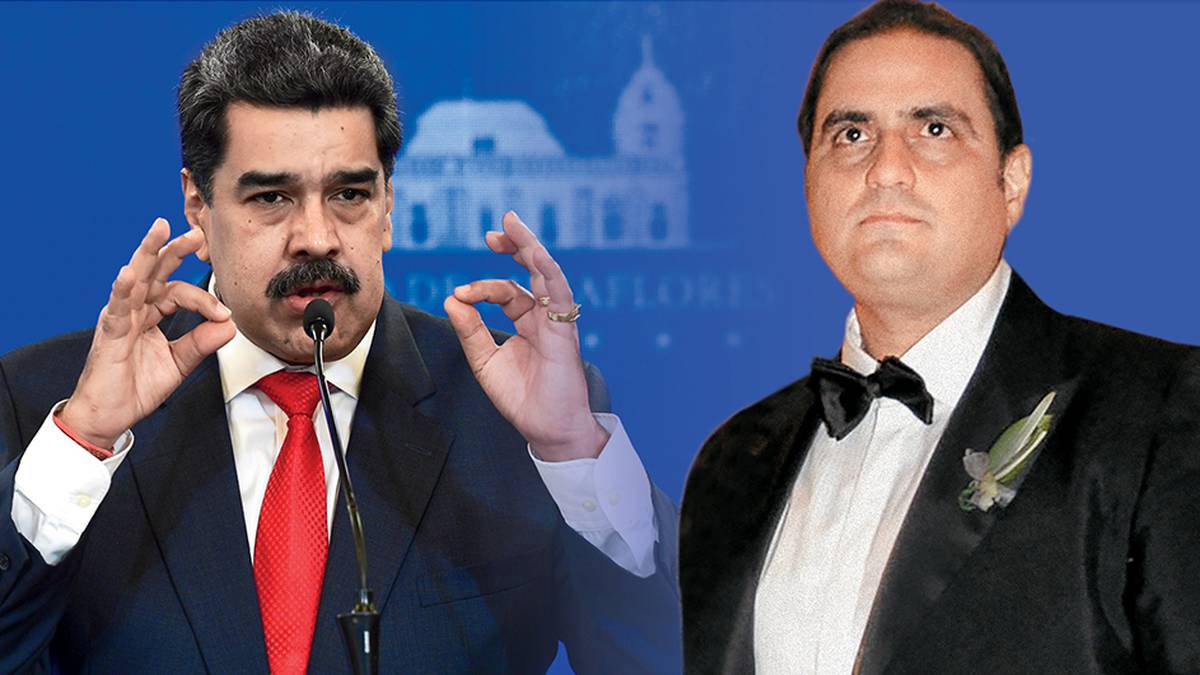
The trial for his possible extradition is on March 10. What do you anticipate that scenario will be like? Do you think that the accusations against Alex Saab have more the character of a political trial, against Venezuela itself?
Garzón: We, the defense, the legal team in the United States have tried to be part of the case in the United States. We have asked to be present, but the US prosecutors have objected with absolutely strange arguments. First, they attacked us saying that we are not lawyers for Alex Saab but for the Bolivarian Government. It is a situation that never ceases to amaze.
They say that we do not represent anyone diplomatically. But, if you do not even recognize the Government of Nicolas Maduro, how do you want someone to be credited to you if their legitimacy is not recognized? But it is that, in addition, they issue an international arrest warrant with absolutely incorrect assumptions, with data and investigations carried out behind the scenes and without the possibility of confrontation. Also, referring to a person who is a diplomat and who, in any way, how can this supposed plot to protect someone diplomatically be true when there was not even an arrest warrant against him?
Saab was on a humanitarian mission, referred to with food and medicine. He has long been appointed as Venezuela’s diplomatic agent. Therefore, in humanitarian work, it is highly unlikely that this could be a strategy to protect him when the credentials were in the same luggage. Later, they also appointed him to the African Union, which has been a continuation of the same work. Therefore, we are not looking at a strategy by Alex Saab and his defense team to get him out of the predicament of an extradition, but rather a strategy by the United States. They are using all their legal mechanisms, and not so legal, to obtain the extradition of a person that they obviously want to use as a guide, means or mechanism to reach another purpose.
That is, they are instrumentalizing an extradition process because they want to obtain a different purpose: to attack the Bolivarian Government and specifically its own president, who, of course, in this case is not being judged or has nothing to do with it. On the contrary, we have a person who has been deprived of liberty since June 12 and still, to this day, we do not know why.
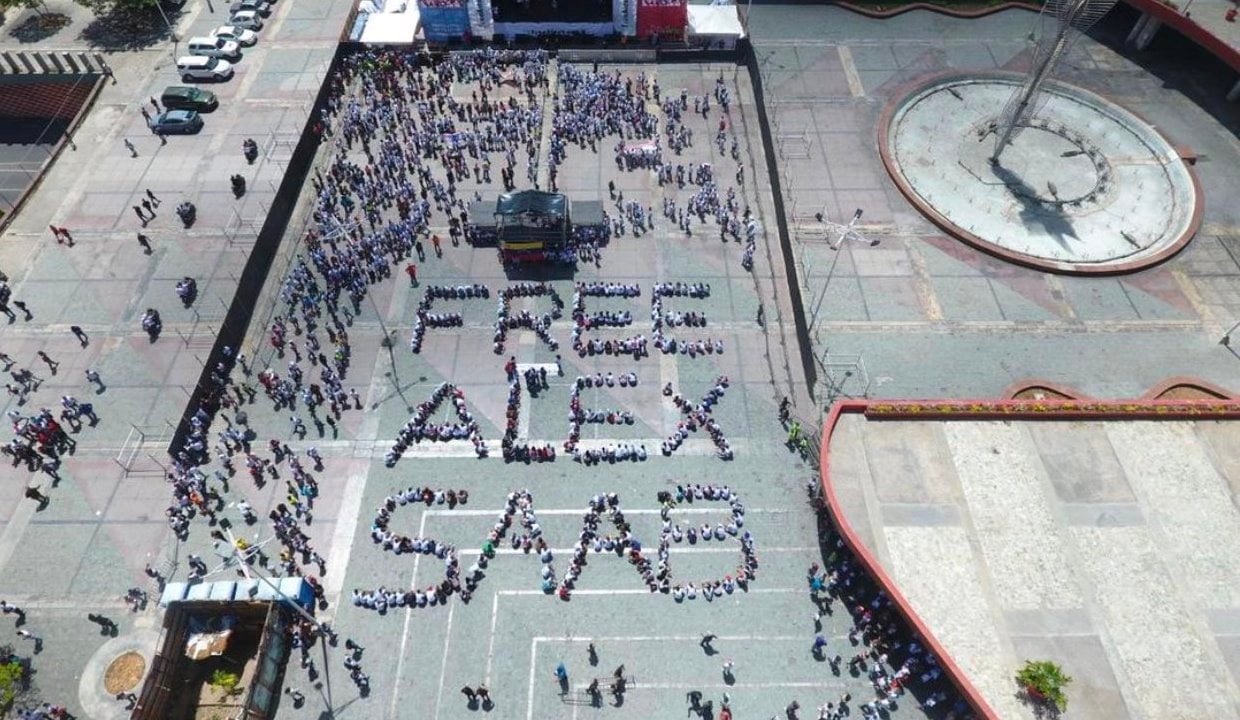
Alex Saab has helped break the blockade, allowing food and medicine to reach Venezuela. Is this humanitarian act what makes the US angry?
Garzón: The sanctions that Venezuela suffers, imposed from the beginning by the United States, include a series of norms that range from the inclusion of people on the OFAC list to sanctions against the country itself, against the leaders. Many abstain absolutely from moving financial resources, mainly for the country’s own subsistence. This was revealed by the United Nations itself in the last visit of the corresponding rapporteur. What is happening is that a country is being forced for political issues that can be discussed, that have to be discussed.
There is a political problem in Venezuela that has to take some channels, but not coercion, or sanctions, because that is how the entire Venezuelan people are condemned. It is not with the appointment of a pseudo-president that even after elections to the National Assembly were held, he is still considered (in this case by the United States) as a functional president so as to give him power over state assets. An example is the PDVSA subsidiary company (CITGO). They are resources, such as gold in Great Britain, that are being subtracted from the legitimate and sole Government of Venezuela and put at the service of a person and an absolutely opaque structure that no longer has recognition, not even that of the European Union itself .
This is very serious. I hope that the international community, beyond the confrontation with the Venezuelan government, realizes that they are doing very serious things against the Venezuelan community. Apart from that, in this case what does Alex Saab have to do with it? He is a diplomatic agent, a person deprived of liberty who develops activities beyond his own, as anyone can have, for the benefit of the community itself. What cannot be done is to resort to a clear, palpable system of legal warfare where the law is used to politically attack those who do not agree.
I think there are many countries that, with a much more questionable system, could be subjected to that pressure from the United States. In this case of Venezuela – I will not enter into that dynamic of defending the Bolivarian Government – it has mechanisms to do so. But, Alex Saab is not part of a government structure, he is simply a person or a diplomatic agent who, because of his humanitarian work, has been granted that immunity.
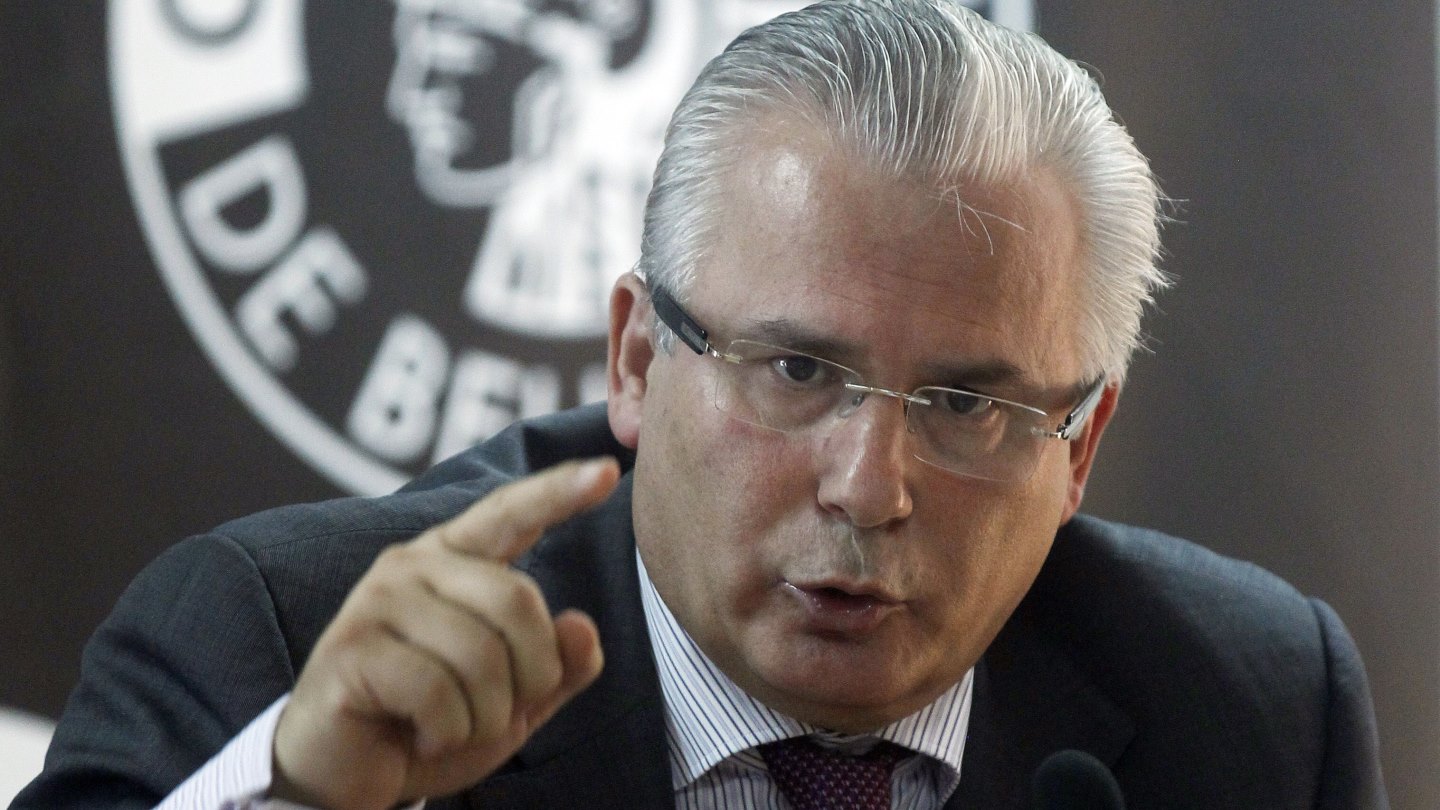
Is there pressure from the United States towards the justice system or the Cape Verdean Executive? What consequences would it have if Cape Verde continued with this attitude of disrespect for international law and diplomacy?
Garzón: We hope, as a defense team, that the Cape Verdean jurisdictional authorities will finally do what they should do and not with so much reluctance. Our license is technical-legal. We do not enter into political issues, only when we have to argue and value an inviolability. That is a sovereign political decision, of a sovereign country, and if the United States itself were in a similar situation, I would have the same speech. If you have diplomatic protection, you have it. Another thing is to be in favor that diplomatic protection exists, but for centuries it has been unalterable. It’s not like killing ambassadors like in the movies. No, here there are international conventions precisely that protect diplomats and make them inviolable in order to protect their activity.
That is what we are asking the Cape Verde court to recognize, beyond any power that the strongest country – the United States – can exercise against the weaker. There is a mechanism, a rule of law and they are laws that have to be answered to. Obviously, we have signs that there is pressure from the Executive Power of one country on another. It was even said that charges were dropped from the State Department in order to promote the goodwill of Cape Verde in favor of extradition. But it happens that the charges are not removed by the State Department, nor by the judges, and therefore there is no change in that regard. It happens that, given the volume of a hundred-plus-year sentence that Mr. Saab could receive if he is extradited and convicted, it is clear that there is an inhuman treatment.
They are totally disproportionate penalties. So (the United States) they say: «We are going to persecute you for nothing more than a deed», but then, when he is in the United States they persecute him for everything. If I have experience in something, it is in extraditions, because I have been working on this matter for more than 25 years. So yes, I think there has been pressure. Alex Saab himself was told during the time he was in prison.
Now, we do not know if these (the pressures) are still being carried out. But, the indications are that at least publicly and in the media there is confirmed information such as military presences and others. This, at the very least, puts the impartiality of this procedure into high suspicion and should be reported. This, so that Cape Verde feels protected because, if Cape Verde’s position at the international level were to yield to reasons of this type that are not of law, would damaged its image before the international community and, above all, before the community of States of the ECOWAS and the African Union, which are properly demanding that they be respected.
We are trying to put on the table all the elements that are in this situation of illegality. There are many attacks that have been made to the defense and to myself: «How do you defend Alex Saab?» No, I am defending the rule of law and human rights that affect any person, and not because of their origin or because there is a State that some like and others do not like.
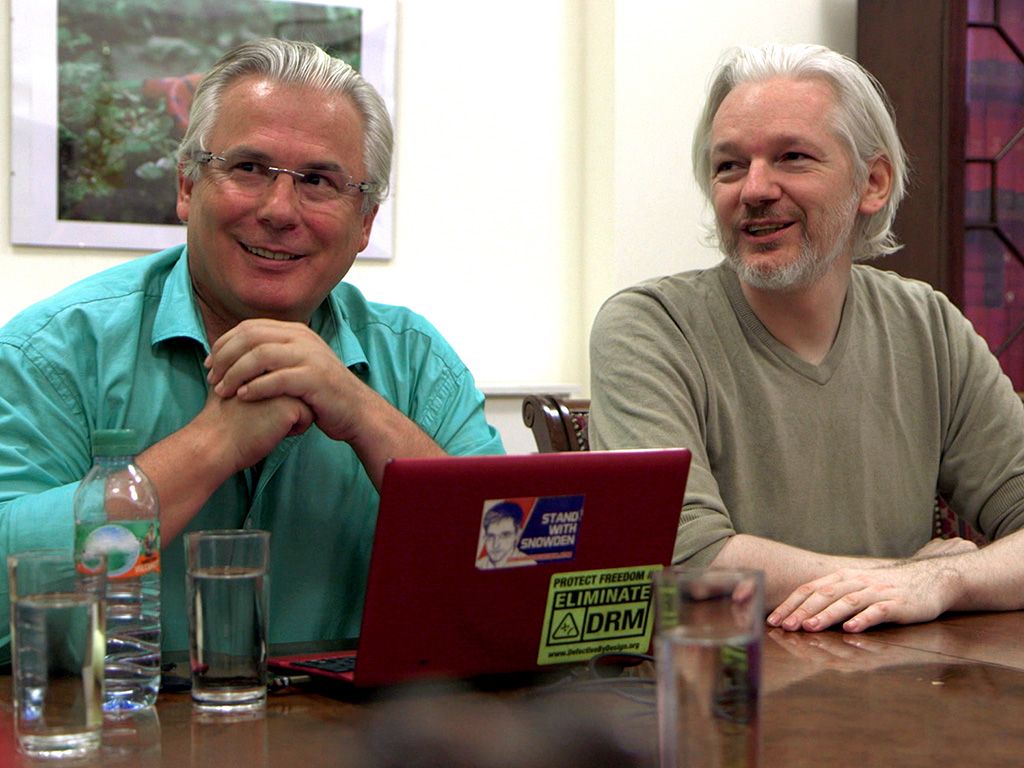
Now, about the US persecution against Julian Assange, you are his defense attorney. How do you see the case, the future of Julian and how is his health? Will his speedy release and his non-extradition be achieved?
Garzón: We have a ruling from the British judge, although it is not based on the violation of freedoms and the right to access information, which is what we ask for. We wanted it to be denounced, demonstrated and reflected in the sentence that it has been (and continues to be) a political persecution by the United States against Julian Assange and Wikileaks. All because he denounced in 2010 – and in later times – different highly secret activities, some illegal or illicit, others questionable, other major cases of corruption, crimes, possible crimes against humanity. But, for this reason, he is immersed in a judicial process, under the sign of a 1917 law of espionage.
There was no espionage, only pure and hard freedom of expression, and an immeasurable courage to face techniques that at least arouse the suspicion of illegality. But, in the sentence, it was achieved not to grant the extradition because there is a high risk of suicide, of an attempt on one’s life. This, precisely, due to the volume of possible punishment and especially because – let us bear this in mind – Julian has been deprived of liberty since June 19, 2012. It is tremendous, he is on the way to nine years. We are now facing the possibility that the Supreme Court will rule on the extradition. If it were confirmatory of the first resolution, we would be in a situation of having won the case and that Julian can get out of this situation of legal kidnapping in which he finds himself; and thus enjoy his family and be able to exercise what he knows how to do, journalism, and dedicate himself to it with courage.
I must admit that from the beginning of my approach to this case I put as a condition that I would do it ‘probono’, because I believed in what he was doing. Later, I recognize myself as Julian’s friend and admirer in the sense that I know that everything has been risked so that the citizens of the world know how, at times, the intelligence services and the corresponding government services betray democracy itself and the own mechanics of protection of its citizens, professing that it defends them.
Let’s hope the United States reacts with this new president and respects the first amendment, which talks about the right to freedom of expression
Garzón: Look at what the Republican senators have alluded to to avoid the impeachment of President Donald Trump. However, we simultaneously have who denounced alleged criminal acts subjected to an extradition process. That is the paradox of the United States: it applies its rules harshly to all those who oppose it, but they stop applying them when they affect them.
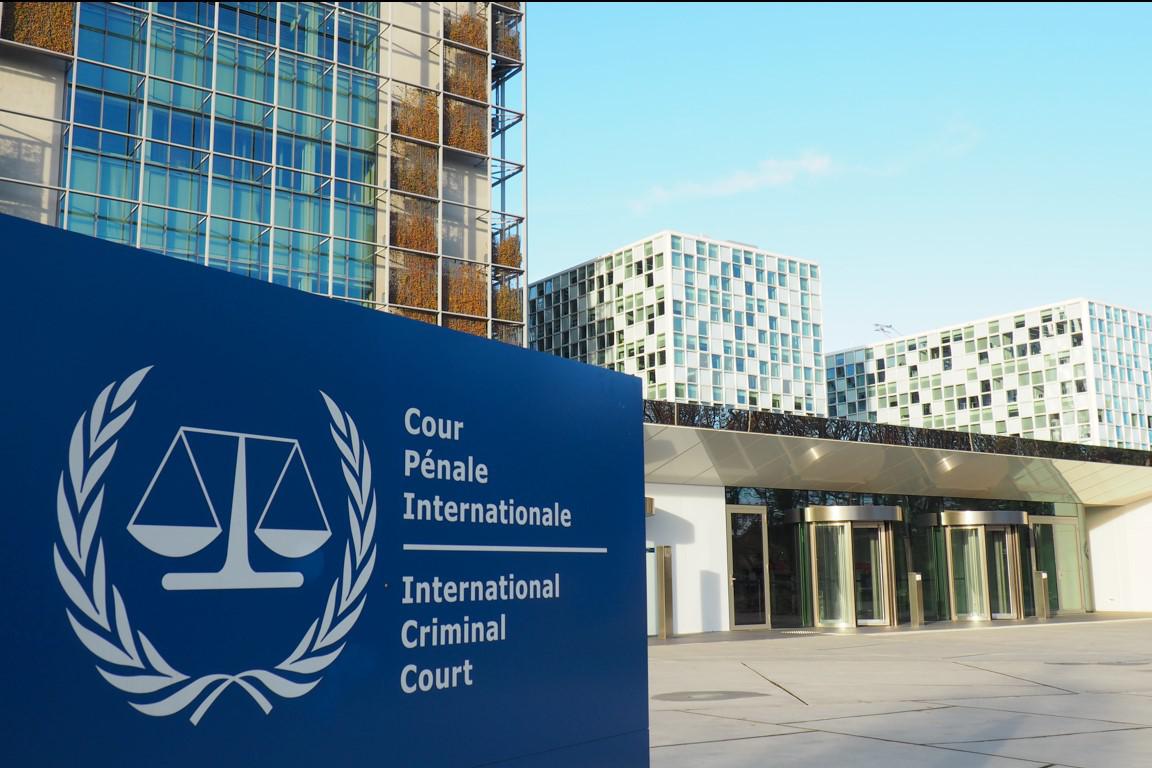
Finally, from your experience: in the face of a complaint against humanity filed in Chile against President Sebastián Piñera for the systematic violation of human rights … in the event that the Chilean courts are exhausted, do you see enough merits so that this complaint be accepted by the ICC?
Garzón: I have been very close, and I continue to be, to all politics, justice, what Chile is experiencing. I have always been interested in what occurs in Chile and for obvious reasons, for years I have followed events quite closely and especially, since the social outbreak of October 18, 2019. I am highly concerned. I even had the opportunity to participate with my friends from the Front Line and with other human rights organizations in January 2020, in Santiago de Chile, in an event and then live the demonstrations ‘live’.
From what I have seen so far, there seems to be a lot of possibility of approaching the reality of a pre-established systematic action by some part of the State. Then, this could come to be considered as a crime against humanity.
That includes all the systematic action of the Carabineros against the protesters: the hundreds of ‘eye-bursting’, the massive number of prisoners, the issues that are still being repeated. Recently, there was another victim of an ocular explosion, death actions in the police stations themselves, strange suicides and many more complaints that affect large groups and indigenous peoples. They lead me to think that we are facing an event of greater gravity and importance than simple possible isolated crimes, simply chained together. Therefore, yes, I think they could be classified as such. But, as for the prosecutor’s office of the International Criminal Court (ICC), with which I collaborated for a time as an external advisor, due to the principle of complementarity of the Rome Statute, it must first let the Chilean courts do their work.
It is necessary that the Chilean justice deepen with clarity, in detail, the minimum data that reveals this criminal action and comprehensive protection of the victims. If it does so, identifying the possible perpetrators, even if they occupy the highest magistracy in the country, wherever it may be, there will be no need for the ICC prosecutor’s office to act or open an investigation or a preliminary examination. But, obviously, if this due process examination does not take place, an exhaustive investigation with all the guarantees, with dependency, we could face this scenario.
Therefore, the responsibility of the institutions, especially the Chilean jurisdiction, is what will determine whether after their omission, the possibility of opening a process in the ICC prosecutor’s office or, on the contrary, there has been a proportionate response to the magnitude of the acts that have been and are being committed.
